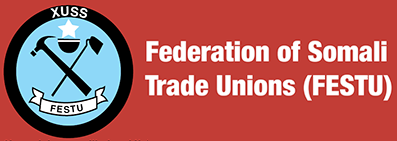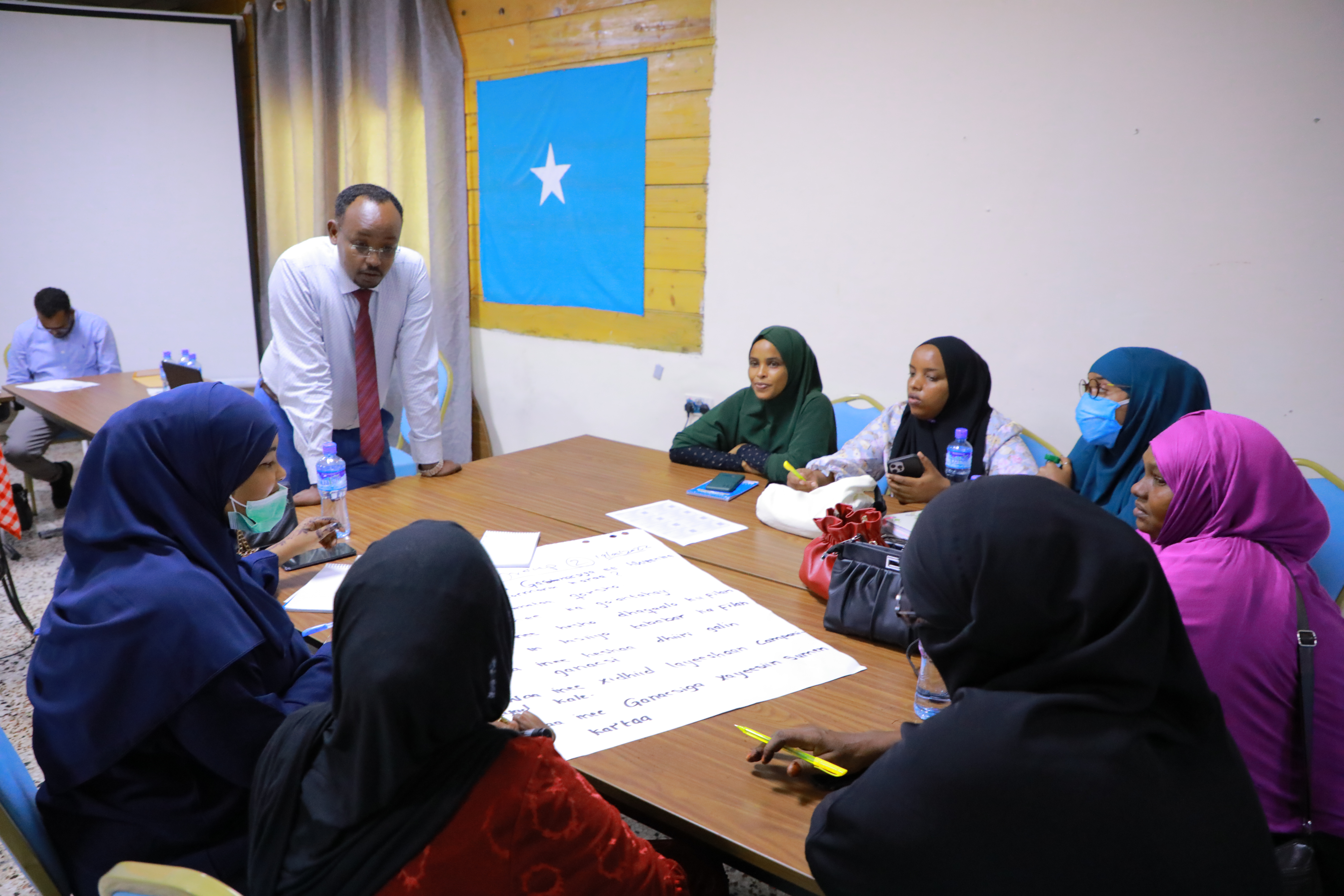The Somali trade union movement must remain at the forefront of efforts aimed at achieving a fairer world for women in the workplace, by tackling gender stereotypes and negative perceptions of women. This was the stance taken by participants at the end of a 3-day workshop on women’s entrepreneurship and gender justice held in Mogadishu, Somalia, from 19 to 21 June 2022.
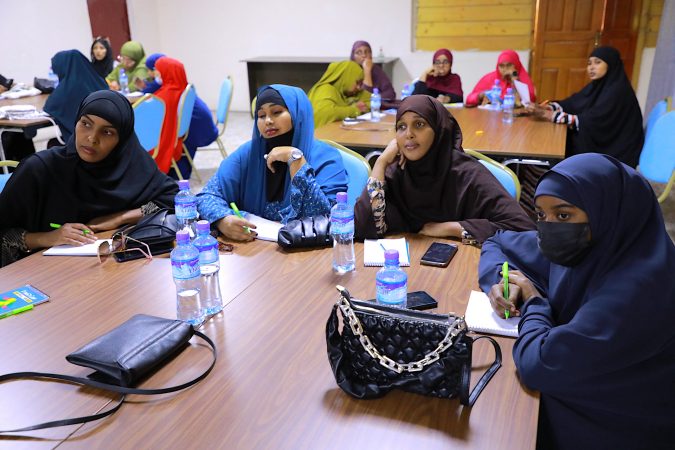
Focusing on the empowerment of women at work to highlight the importance of women’s entrepreneurship development and the role trade unions can play in protecting the rights of working women, the 3-day workshop was organised by the Federation of Somali Trade Unions (FESTU) in cooperation with the International Labour Organisation (ILO) and with the support of the Embassy of Sweden to Somalia.
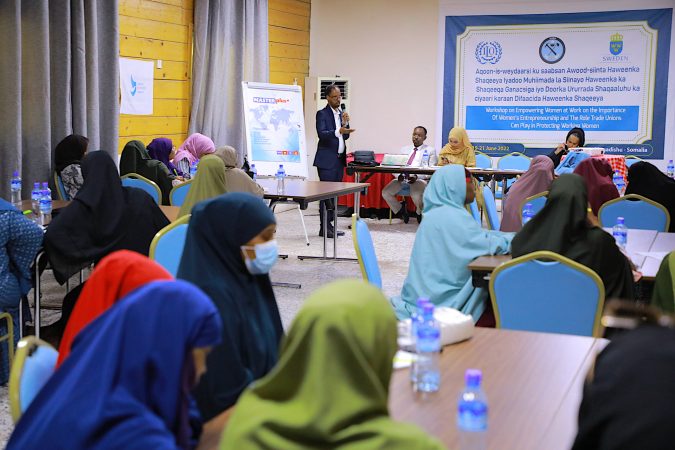
A total of 35 women trade unionists, women entrepreneurs and women in the informal economy participated in the workshop. The participants discussed pertinent and critical challenges plaguing the Somali labour market including: organising and advocacy for women’s economic empowerment, protection for women workers and other vulnerable groups, women’s participation in decision-making, violence and harassment in the workplace, promoting women’s employment through job-rich green growth based on just transition, among others. Participants hailed the workshop as a timely opportunity for a rich and well-timed dialogue on the centrality of economic empowerment to the struggle for women’s emancipation.
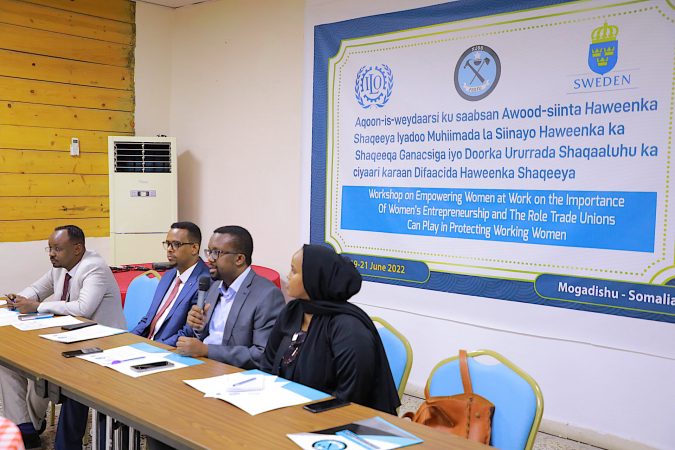
Achieving set goals of the economic empowerment and emancipation of Somali working women would require a multi-pronged approach with trade unions as the driving force, FESTU’s General Secretary Omar Faruk Osman said. “Trade unions must promote gender equality in the workplace and challenge stereotypical and harmful perceptions of women, their capabilities and potential in the labour market. As trade unions, we must actively promote the notion and practice of female leadership”.
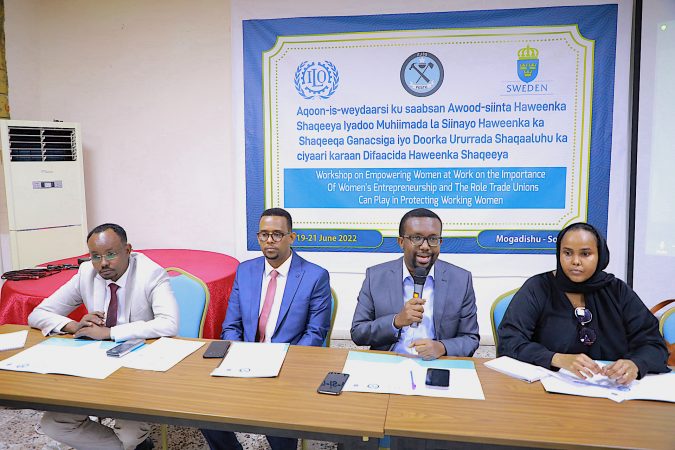
“This means an end goal of women receiving equal pay for work of equal value, advocating for progressive working conditions steeped in equal access, fair work-life balance, and addressing the pervasiveness of gender-based violence at work,” he emphasized.
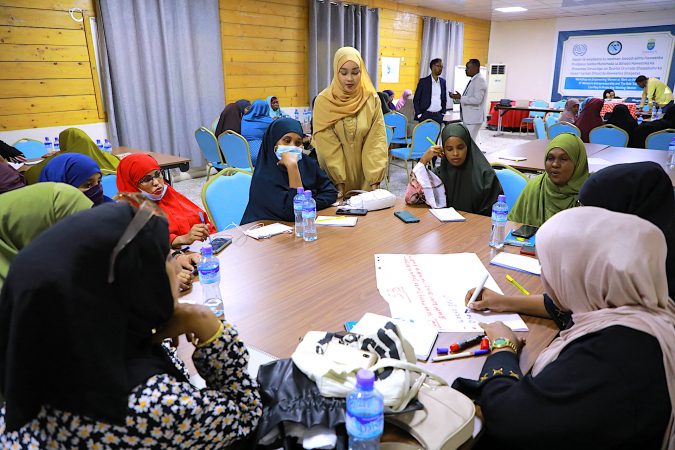
Since time immemorial in Somali society, women have always played a pivotal role in sustaining families and protecting livelihoods. Women have been both income earners in the public sphere and responsible for the private sphere. But while women’s economic and social contributions are acknowledged, they are taken for granted. Workshop participants agreed that female leadership in Somalia’s labour market should be acknowledged, harnessed, and empowered at all levels of the public and private spheres by creating fair access and leveraging political, digital, and economic opportunities.
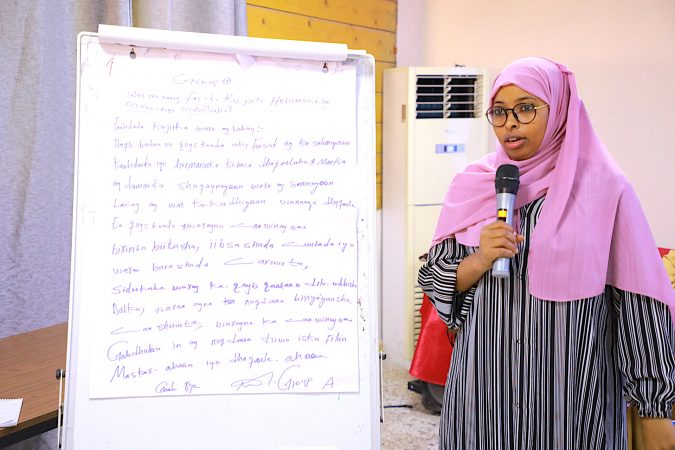
Ambassador Per Lindgärde, the Swedish Ambassador to Somalia, whose country generously financed the activity, observed that while Somalia has great economic potential, “that potential will always be limited if the workforce is not inclusive”.
“Women entrepreneurs already dominate the informal sector of the Somali economy, enabling them to become part of the formal economic sector will be of great benefit to the Somali economy and therefore we are glad to support this initiative of the Somali trade unions,” Ambassador Lindgärde said.
Participants noted that both conscious and unconscious gender and cultural biases still persist in politics and the labour market, especially at the enterprise level. Within this context and coupled with the lack of confidence in female leadership, the digital skills gaps, and the preponderance of traditional male-dominated spaces all serve to marginalise women and their voices, they averred.
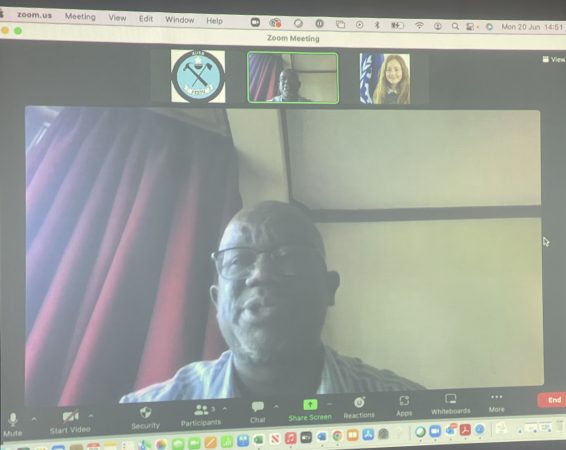
In his address to the workshop, ILO’s Director for the Horn of Africa region including Somalia, Mr. Alexio Musindo, stressed that FESTU has a duty to promote gender equality in Somalia through advocacy and by challenging the status quo of gender inequalities in the formal and the informal employment.
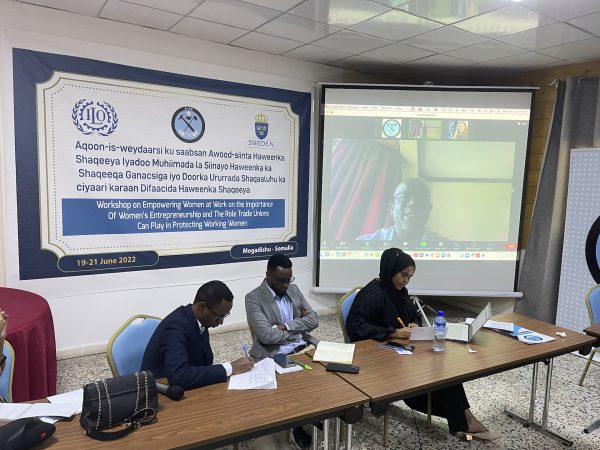
“At ILO, we strongly believe that women’s empowerment is a precondition for a just, sustainable and rights-based Somali economy. However, the situation in the country gives a different picture with women disproportionately affected by poverty, over-representation in insecure and low wage jobs and are victims of discrimination and abuse in the workplace and exploitation. I once again call for the inclusion of more women in decision-making positions in all walks of life. This should go hand in hand with systematic structural changes not only within FESTU, but also other national decision-making bodies,” Musindo said.
He called upon Somali women trade unionists to continue the process of dismantling traditional and persistent structural barriers at the intersections of gender, gender identity and class. “The ILO will continue to work with you in advocating on new and old fronts, including economic and social justice for women, gender based-violence and harassment, equitable and sustainable development, and a just transition for climate justice and industrial transformation” he assured.
“Despite these pushbacks, it was encouraging and empowering to see working women having extensive deliberation and proposing very specific actions on how to overcome social, cultural, political, and economic barriers within the work environment,” added Osman.
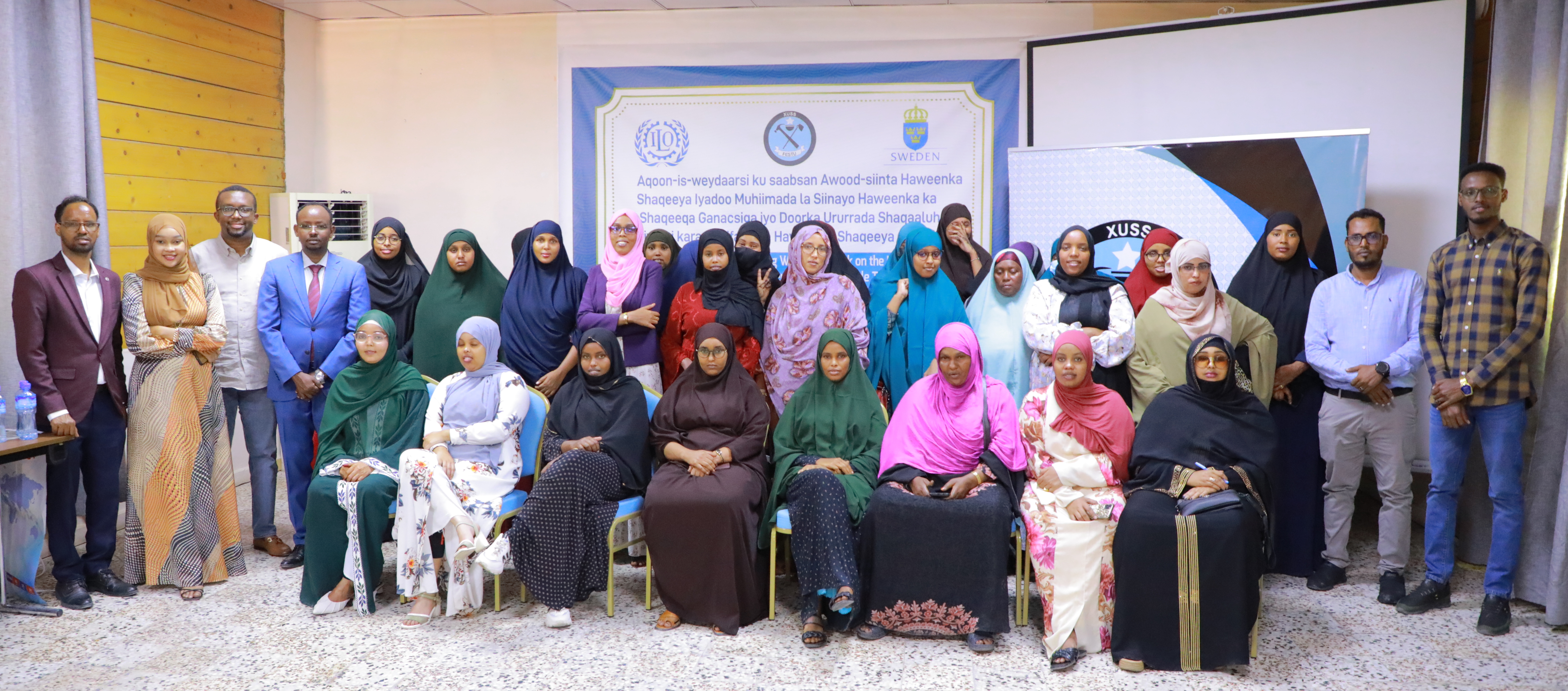
Participants identified strategies of trade unions in facilitating these actions including reenforcing women’s leading role in the labour market to tackle women specific challenges, building greater resilience within the labour market and rebooting female entrepreneurship.
Specifically, the participants called for:
- Setting ambitious targets for female representation in the labour market both at the union and enterprise levels
- Leveraging technologies, access to productive assets such start-ups capital, credit, land, training in effective business management and digital skills.
- Building strong women’s professional skills and networks.
- Making sure that the revised labour code provides adequate protection to women in the informal economy.
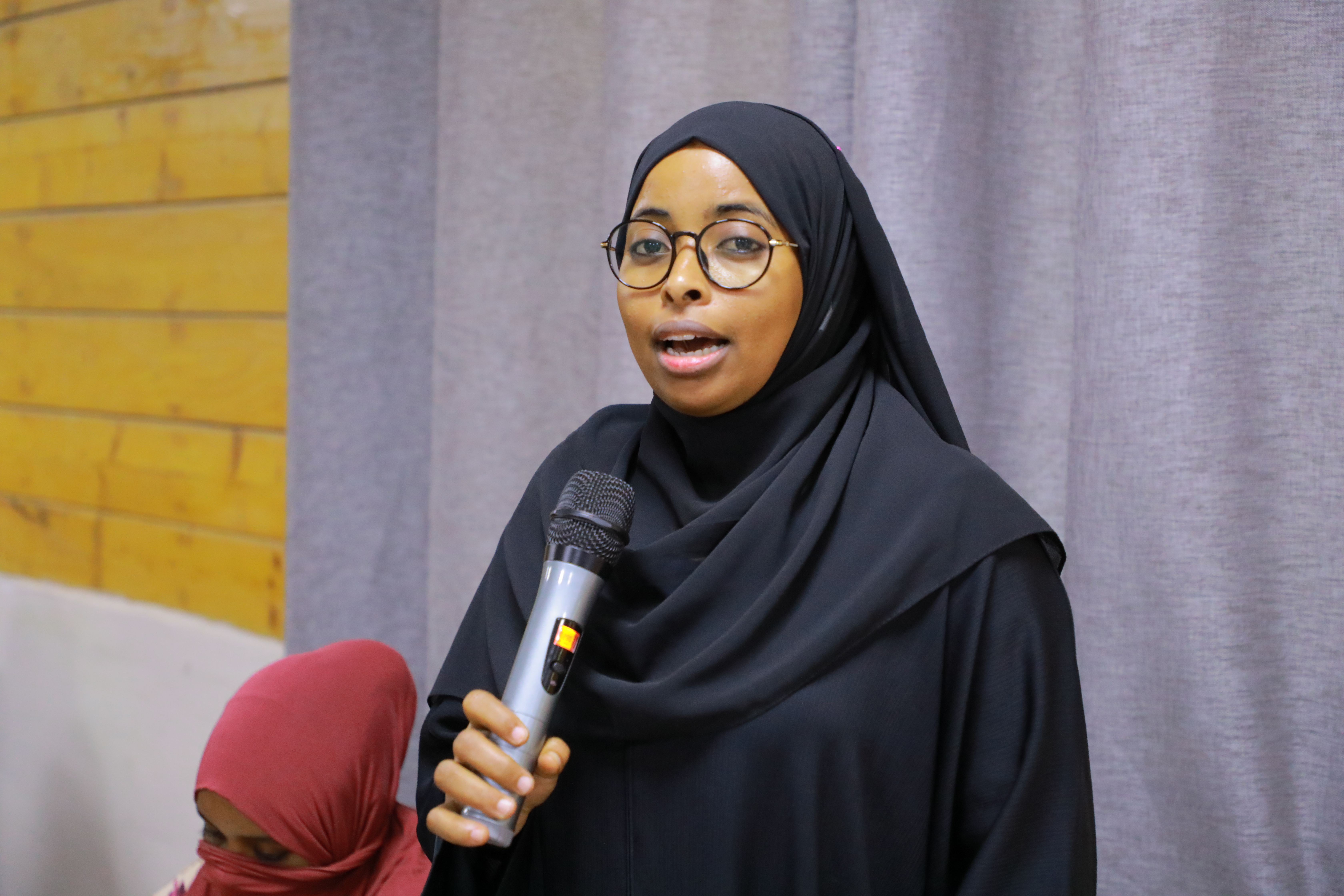
These must all be conceptualised and implemented against the backdrop of a strong legislative labour framework aligned to international labour standards and best practice. For this reason, the participating women urged the Federal Government of Somalia to prioritise the domestication and enforcement of ILO convention 190 on violence and harassment at the world of work. This is a concrete measure to help to end sexual and gender-based violence that women workers and female entrepreneurs face in the labour market and society at large.
Women trade unionists and entrepreneurs expressed deep appreciation to the Embassy of Sweden and the ILO for their support in making this workshop a success and their commitment to helping realise gender equality and women’s total economic empowerment and emancipation at the workplace level.
